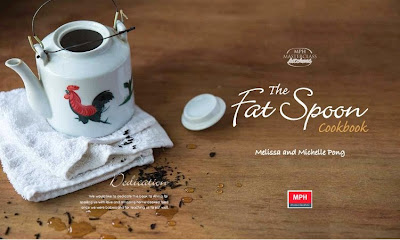Not too long after I received this book, my contact at the distributors' side left the company, and production started picking up after that. I haven't been back at the warehouse, rooting through the book pile for stuff to review.
Not that I have the urge to - yet.
After months being bogged down by work, life and poor health, it feels strange to be published again.
I kind of miss it.
Yes, it's also kind of funny that this came out at a time when we wish we have running water 24/7. Here's hoping the current turbulence in our lives eventually goes away.
Murky depths
A novel with deep, dark secrets
first published in
The Star, 08 April 2014
Is Wally Lamb's
We Are Water the definitive post-racial, post-9/11 American novel?
Its premise sounds simple enough: Annie Oh, artist and divorced mother of three, is about to marry Viveca, the woman who helped further her career as an artist.
Her decision shakes up her family a bit, not least because Annie was already seeing Viveca while her marriage was on the rocks and her son, a born-again Christian and army nurse, objects to his mother's same-sex marriage.
Not to worry, we will get more than just Annie's family trying to adjust to their mother's new direction in life and getting along with the new (mum?)in-law.
Besides Annie, her children and her ex-husband Orion (what's with that name?), the numerous narrators in the novel include an elderly art curator and several other characters from Annie and Orion's pasts.
A seemingly unrelated interview with said curator and his tale of the mysterious death of a black artist – the type whose genius only surfaces decades later – leads to Annie's introduction and the art she produces.
As the story progresses, we get hints of something terrible that happened during Annie's childhood that might have fuelled her "angry art" and have repercussions for her family and the day of the marriage.
We get an idea that Annie's is not a typical American family. Originally a red-headed lass with Irish roots, she'd married Orion who is of Italian-Chinese descent. By the time she meets the Greek lady Viveca, her children are already grown up. Besides her army-nurse son, Annie has two daughters: one's an earth-mother type and the other is young, hip and dreams of Hollywood stardom.
But this portrait of the new post-racial American family is not quite all hunky-dory, either. Under the glittering surface of the Ohs' façade lie murky depths where secrets lurk. All of them have something to hide from the world and each other, but perhaps nothing as dark as what Annie had tucked away in her memories.
One complaint is that the pace at which the long story of this family (over 500 pages) unfolds is painfully slow. While much of the backstory is meant to give the characters more depth and character, I found a lot of it as enlightening as white noise.
The again, I generally follow the news and goings-on in the United States more than of what goes on at home, so a lot of it sounds all too familiar.
With regards to the Ohs' first-person narration: the tone is mostly ranty and whining. We have details that add meat to the characters, their ways of thinking, and motivations, fears and hopes, but half the time they just seem to be venting. It's like reading a blog by a dysfunctional family.
At some point, their troubles and secrets no longer matter, as this reader, bogged down by fatigue, started skimming in haste towards the ending – which, I suppose, bears the promise that, no matter how difficult the past and present, there's always light at the end of the tunnel. And family will always be family.
I'm not particularly impressed by this novel; reading it was like a rough tumble in a white-water raft. However, those with a penchant for novels that plumb deep, dark family secrets will find Lamb's turbulent, turbid waters a satisfactory, if challenging, dip.
We Are Water
Wally Lamb
HarperCollinsPublishers (2013)
561 pages
Fiction
ISBN: 978-0-00-753284-1











